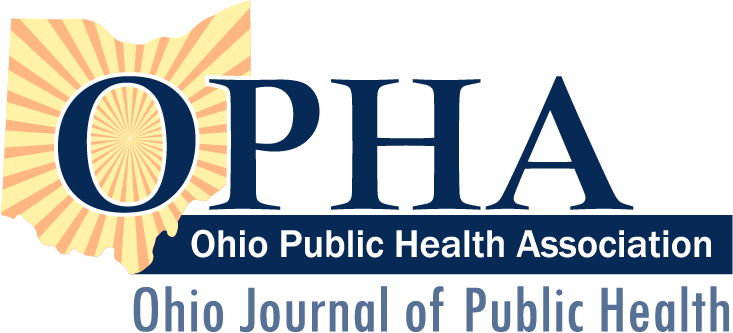Ohio Health Care Professionals’ Survey: Work and Home Stressors During the COVID-19 Pandemic
Abstract
Background: The COVID-19 pandemic brought unparalleled strain to the United States’ already overburdened health care workforce, and research is just beginning to shed light on its effects. This study sought to document health care pro-vider stressors during the pandemic to inform prevention and intervention strategies to better support their well-being.
Methods: A one-time online survey was completed in July and August 2021 by Ohio health care professionals employed during the COVID-19 pandemic. We assessed for work and employment status changes and measured the severity of various work and home stressors among respondents who worked during the COVID-19 pandemic (N = 12 807).
Results: Over a quarter of respondents had a change in work setting, and 59% had an increase in their workload; 20% of respondents were furloughed, laid off, or unemployed at some point during the COVID-19 pandemic. Over 37% reported a negative financial impact. The work stressors causing the greatest concern were spreading the virus and insuf-ficient communication from leadership. The primary home stressors were a lack of quality time with family and friends, being too tired when home from work to cook, do chores, etc, and being a supportive, present parent. At least half of the sample scored each of these as moderate, significant, or extreme stressors.
Conclusion: The COVID-19 pandemic caused unrelenting stress affecting Ohio health care professionals at work and at home. Prevention and early intervention programs and public policies are required to prevent burnout and better support health care worker well-being.
Keywords: Health personnel, Occupational stress, Psychological stress, Psychological burnout, COVID-19
How to Cite:
McCloskey, R., Goldberg, L., Santucci, R., Koralewski, J., Kocinski II, M. & Clark Hammond, G., (2023) “Ohio Health Care Professionals’ Survey: Work and Home Stressors During the COVID-19 Pandemic”, Ohio Journal of Public Health 5(2), 1-11. doi: https://doi.org/10.18061/ojph.v5i2.9162
Rights: Rebecca J. McCloskey, Lily Goldberg, Robert Santucci, Justin Koralewski, Michael J. Kocinski II, Gretchen Clark Hammond
Downloads
Download PDF
View
PDF
